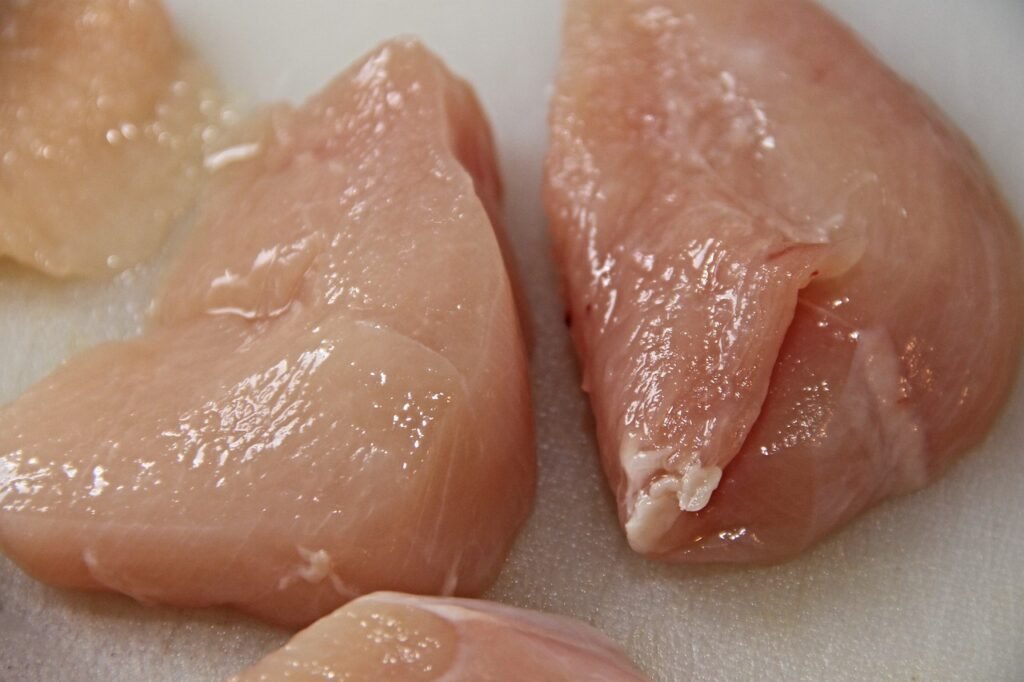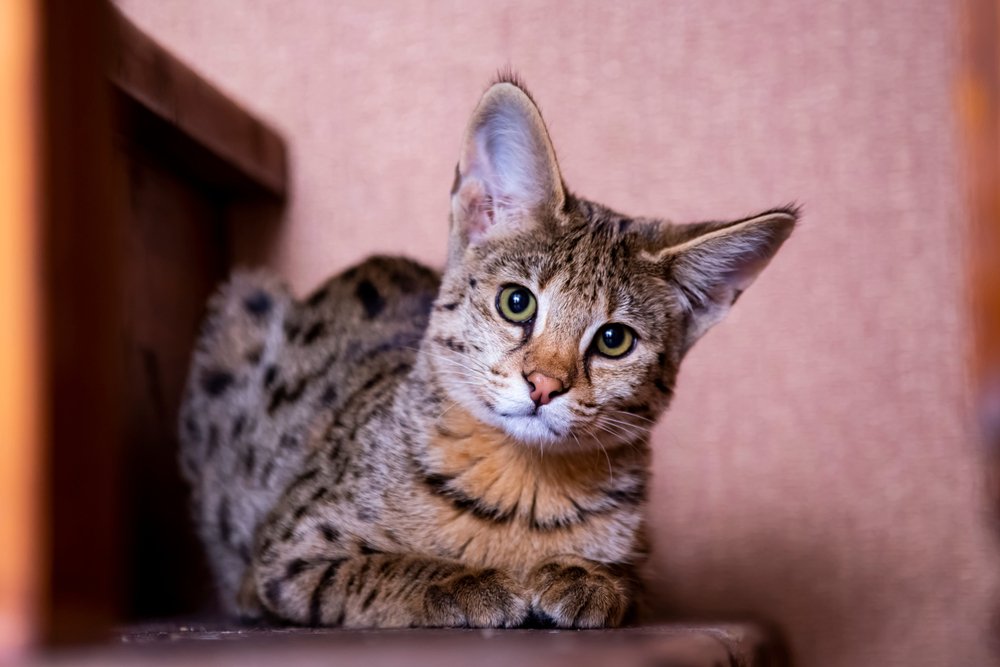Table of Contents
Are you curious about what do Savannah cats eat? Prepare to be amazed as we unveil the surprising diet secrets of these magnificent feline creatures.
Savannah cats, known for their exotic appearance and wild ancestry, have unique dietary needs that set them apart from other domesticated cats. While they may share similarities with their wild relatives, these hybrid cats require a balanced and specialized diet to thrive in a domestic setting.
From their instinct as carnivores to their preference for raw food, we will explore the fascinating world of a savannah cat’s palate. Join us as we delve into their dietary choices, including the types of proteins they crave, the benefits of a raw food diet, and how to ensure their nutritional needs are met.
Whether you’re a proud Savannah cat owner or fascinated by these extraordinary creatures, this article will provide valuable insight into the surprising diet secrets of Savannah cats.
Understanding the Dietary Needs of Savannah Cats
Savannah cats crossbreed between a domestic cat and a serval, a wild African cat. This hybridization has resulted in cats with unique dietary requirements. Understanding their nutritional needs is crucial to ensuring their overall health and well-being.
Savannah cats, like their wild ancestors, are obligate carnivores. This means their bodies are specifically adapted to thrive on a diet of animal protein. Unlike herbivores or omnivores, savannah cats lack certain digestive enzymes for breaking down plant matter. As such, their digestive system is more efficient at processing and absorbing nutrients from animal-based foods.
The Natural Diet of Savannah Cats
In the wild, savannah cats mainly consume small mammals, birds, and reptiles. Their hunting instincts drive them to seek prey that provides essential nutrients, including proteins, fats, vitamins, and minerals.
The natural diet of a savannah cat is high in animal protein, which is necessary for maintaining lean muscle mass, promoting healthy skin and coat, and supporting overall growth and development.
In addition to protein, these cats obtain essential fatty acids from their prey, which are necessary for various bodily functions, including brain health and immune system function.
Commercial Cat Food
While a savannah cat’s natural diet may consist primarily of raw meat, providing a completely raw diet in a domestic setting can be challenging. Therefore, many Savannah cat owners opt for commercial cat food specially formulated to meet the nutritional needs of these hybrid cats.
When choosing a commercial cat food for your Savannah cat, looking for high-quality animal protein products, such as chicken, turkey, or fish, is essential. Avoid cat foods that contain fillers, artificial additives, or excessive carbohydrates, as these can harm your cat’s health.
It’s also worth noting that some Savannah cats have specific dietary sensitivities or allergies, so it’s essential to consult your veterinarian to find the most suitable commercial cat food for your furry friend.
What Do Savannah Cats Eat: Homemade Diet Options
A homemade diet can be a viable option for Savannah cat owners who prefer a more hands-on approach to their cat’s diet. However, ensuring that the homemade diet provides all the necessary nutrients in the correct proportions is crucial.
A homemade diet for savannah cats should consist primarily of raw meat, including lean chicken, turkey, or rabbit cuts. It’s essential to include organ meats, such as liver and heart, in their diet as well, as these are rich sources of essential vitamins and minerals.
Additionally, incorporating small amounts of vegetables and fruits can provide additional nutrients and fiber. However, it’s important to note that vegetables and fruits should not make up a significant portion of their diet, as savannah cats cannot digest plant matter.

Protein-rich Foods
Protein is an essential nutrient for savannah cats, crucial to their health and well-being. When selecting protein sources for your Savannah cat, opt for high-quality animal proteins that are easily digestible. Chicken, turkey, and fish are excellent choices, providing the necessary amino acids for muscle development and repair.
Feeding your Savannah cat various protein sources is essential to ensure they receive a wide range of nutrients. Additionally, incorporating raw bones into their diet can provide calcium and other minerals necessary for maintaining strong bones and teeth.
Appropriate Carbohydrates
While savannah cats are primarily carnivorous, they can tolerate small amounts of carbohydrates. However, choosing appropriate carbohydrate sources that are easily digestible for these hybrid cats is essential.
Avoid carbohydrates high in starch or fiber, which can cause digestive issues and may not provide significant nutritional value. Instead, opt for low-glycemic carbohydrates, such as sweet potatoes or pumpkin, which provide energy without causing spikes in blood sugar levels.
Remember, carbohydrates should only make up a small portion of your Savannah cat’s diet, with most of its calories coming from high-quality animal protein.
Essential Vitamins and Minerals
In addition to proteins and carbohydrates, savannah cats require a variety of essential vitamins and minerals to maintain optimal health. These include vitamins A, D, and E and minerals like calcium, phosphorus, and magnesium.
While commercial cat foods are typically fortified with these nutrients, ensuring your Savannah cat’s diet is well-rounded and provide all the necessary vitamins and minerals is crucial. This can be achieved by incorporating various protein sources, organ meats, and small amounts of vegetables and fruits into their diet.
Alternatively, you can consult with your veterinarian about appropriate supplements to meet your cat’s nutritional needs.
Feeding Guidelines and Portion Control
Feeding your Savannah cat the appropriate amount of food is crucial to maintaining a healthy weight and preventing obesity-related health issues. While the specific feeding guidelines may vary depending on your cat’s age, activity level, and overall health, feeding adult Savannah cats 2-3% of their body weight daily is generally recommended. This should be divided into two or three small meals to mimic their natural feeding pattern.
It’s essential to monitor your cat’s body condition and adjust their portion sizes accordingly. If your cat is becoming overweight, it may be necessary to reduce its food intake.
Conversely, if your cat is losing weight or appears underweight, you may need to increase their portion sizes or consult your veterinarian for further guidance.
Common Mistakes to Avoid when Feeding Savannah Cats
While providing a balanced and appropriate diet for your Savannah cat is crucial, it’s also important to avoid common feeding mistakes that can negatively impact their health.
One common mistake is overfeeding, leading to obesity and associated health problems. Measuring your cat’s food portions accurately and avoiding free-feeding is essential. Another mistake to avoid is feeding your Savannah cat dog food or vegetarian diets, as these do not meet their specific nutritional requirements.
Additionally, always providing fresh water and monitoring your cat’s hydration levels is essential, as dehydration can harm their health.
You may also like: 31 Perfect Feline Friends For You: The Best Breeds Of Cats
Conclusion
A well-balanced and species-appropriate diet is essential for Savannah cats’ overall health and well-being. Understanding their dietary needs, including their preference for animal protein and raw food, can help meet their nutritional requirements. Whether you choose to feed your Savannah cat commercial cat food or a homemade diet, it’s crucial to prioritize high-quality animal proteins, appropriate carbohydrates, and essential vitamins and minerals. Following proper feeding guidelines and portion control, avoiding common feeding mistakes, and consulting with your veterinarian when necessary can help your Savannah cat thrive and live a happy and healthy life.
